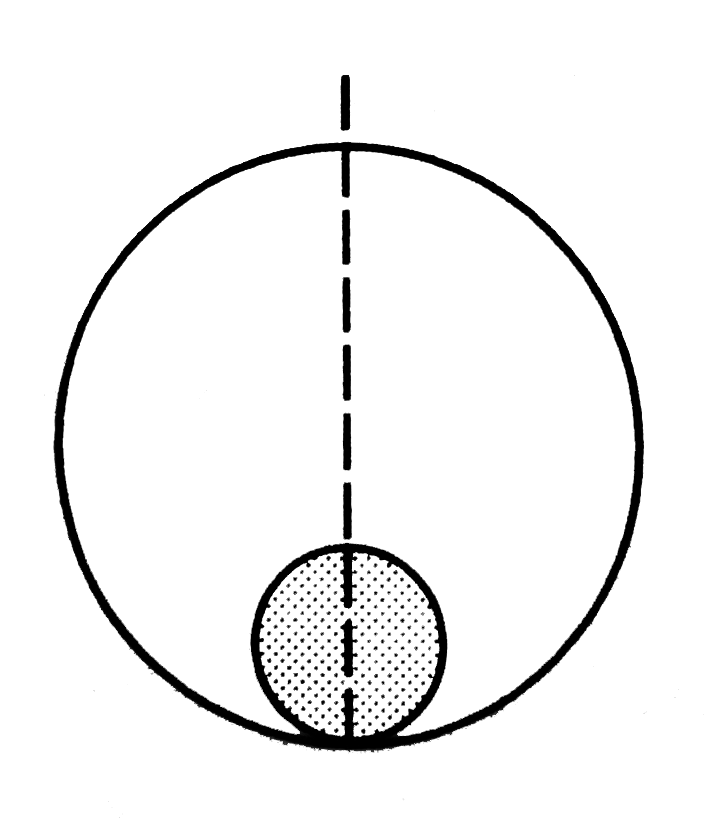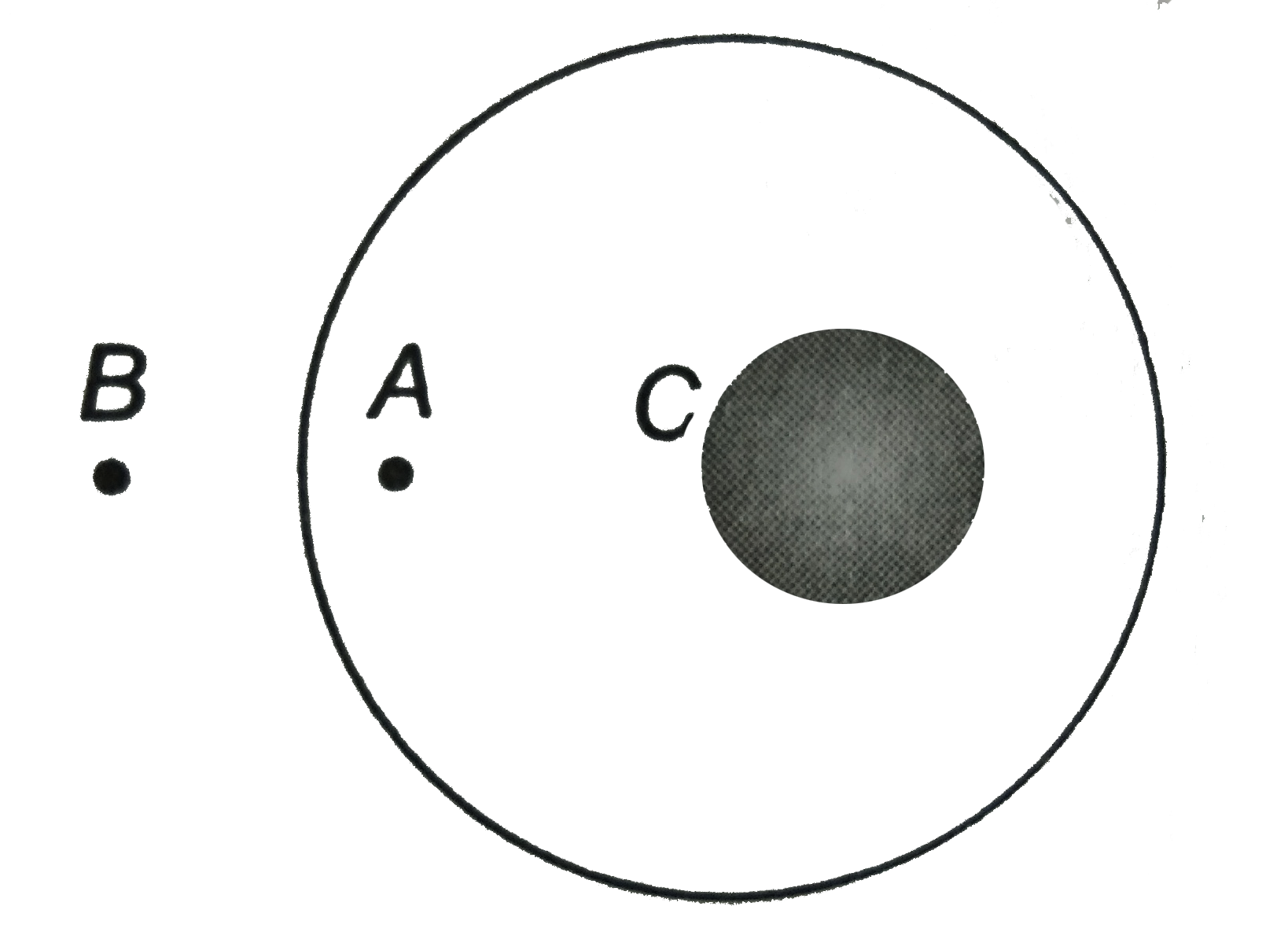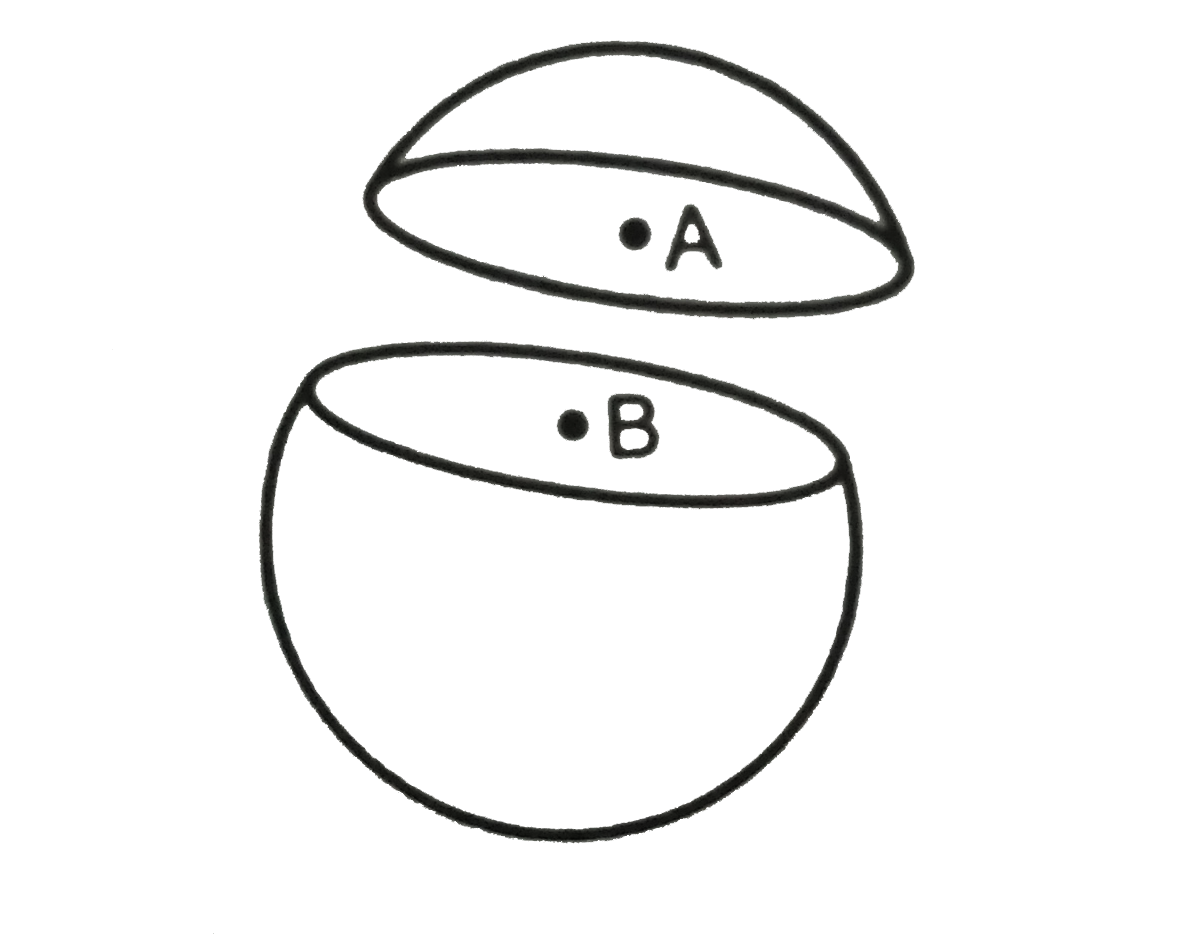Complete Solutions to Exercises of chapter GRAVITATION of Class 11 book with complete answers and questions
| Class 11 | PHYSICS |
| Chapter | GRAVITATION |
| HC VERMA | Exercises |
| Number Of Questions | 39 |
| Academic Year | 2023-24 |
Two spherical balls of mass 10 kg each are placed 10 cm apart. Find the gravitational force f attraction between them.
View SolutionFour particles having masses, m, wm, 3m, and 4m are placed at the four corners of a square of edge a. Find the gravitational force acting on a particle of mass m placed at the centre.
View SolutionThree equal masses m are placed at the three corners of an equilateral tringle of side a. find the force exerted by this sytem on another particle of mass m placed at a. the mid point of a side b. at the centre of the triangle.
View SolutionThee uniform spheres each having a mass M and raius a are kept in such a way that each touches the other two. Find the magnitude of the gravitational force on any of the spheres due to the other two.
View SolutionFor particles of equal massses M move along a circle of radius R under th action of their mutual gravitational attraction. Find the speed of each particle.
View SolutionFind the acceleration due to gravity of the moon at a point 1000 km above the moon's surface. The mass of the moon is `7.4xx10^2` kg and its radius is 1740 km.
View SolutionTwo small bodies of masses 10 kg and 20 kg are kept a distnce 1.0 m apart and released. Assuming that only mutual gravitational force are acting, find the speeds of te particles when the separation decreases to 0.5 m.
View SolutionA semicircular wire hs a length L and mass M. A paricle of mass m is placed at the centre of the circle. Find the gravitational attrction on the particle due to the wire.
View SolutionDerive an expression fro the gravitational field due to a unifrom rod of length L and M at a point on its perpendicular bisector at a distance d from the centre.
View SolutionTwo concentric sphereical shels have masses `M_1,M_2 and radii R_1,R_2(R_1+R_2)`. What is the force exerted by this system on a particle of mass `m_1` if it is placed t a distance `(R_1+R_2)/2` from the centre?
View SolutionA tunnel is dug along a diameter of the earth. Find the force on a particle of mass m placed in the tunnel at a distance x from the centre.
View SolutionA tunnel ois dug along a chord of the earth a perpendicular distance `R/2` from the earth's centre. The wall of the tunnel may be assumed to be frictionless. Find the force exerted by the eall on a particle of mass m when it is at a distance x from the centre of the tunnel.
View Solutiona solid sphere of mass m and radius r is plced nside as hollow thin spherical shell of mass and M and radius R as shown in figure. A particle of mas m is placed on tehline joining the tow centres ast a distance x from the point of contct of th sphere and teh shell. Findn teh mgnitude fo the resultant gravitational force on this particle due to the sphere and the shell if a. `rltxlt2r, b. 2rltxlt2R and c. xgt2R`.

View SolutionA uniform metal sphere of radius `R` and mass `m` is surrounded by a thin uniform spherical shell of same mass and radius `4R`. The centre of the shell `C` falls on the surface of the inner sphere. Find the gravitational fields at points `A` and `B`.

View SolutionA thin sphereical shel having uniform density is cut in two parts by as palne and kept separated as shown in figure. The point A is the centre of the plane section of the first par and B is the centre of the plane sectioin of the second part Show that the grvitationas field at A due to teh first part ss equal in magnitude to the gravitational field at B due to the second part.

View SolutionTwo small bodies of masses 2.00 kg and 4.00 kg are kept at rest at a separation of 2.0 m. Where should a particle of mass 0.10 kg be placed to experience no net gravitational force from these bodies? The particle is placed t this point.What is the gravitational potential energy of the system of three particle with usual reference level?
View SolutionThree particle of mas m each are placed at the three corners of an equlateral triangle of side a. Find the work which should be done on this system to increase the sides of the triangle to 2a.
View SolutionkAS particle of mass 100 g is kept on the surface of a uniform sphere of mass 10 kg and radius 10 cm. Find the work to bbe dne against the gravitational force between them to take the particle away from the sphere.
View SolutionThe gravitationasl fiedl in a region is given by `vecE=(5Nkg^-1)veci+(12nk^-1)vecj.`. a.find the magnitude of the gravitational force acting on a particle of mass 2 kg th gravittional fore actiing on a particle of mass 2 kg placed at the origin. B. Find the potential at teh points (12m,0) and (o,5m) if the potential at teh origin is taken to be zero. C. Find the change in gravitationa potential energyif a particle of mass 2 kg is taken from the origin to teh point (12m,5m). d. Find the change in potential energy if the particle is taken from (12m,0) to (0,5,m)`.
View SolutionThe grvitationa potential in a region is given by 'V=20Nkg^-1(x+y)'. A. Show tht the equation is dimensionaslly correct b. Find lthe gravitational field at the point `(x,y)` Leave youranswer in terms of the unit vector `veci,vecj,veck`. C. Calculate the magnitude of the gravitational fore on a particle of mass 500 g placed at the origin.
View SolutionThe gravitational field ina region is given by `E=(2veci+vecj)Nkg^-1` show that no work is done by the gravitational field when particle is move on the line `3y+2x=5`.
View SolutionFind the height over the eart's surface at which the weight of a body becomes half of its alue t the surface.
View SolutionWhat is the acceleration due to gravity on the top of Mount Everest? Mount Everest is the highest mountain peak o het workd at the height of 8848 m. The value at see level is `9.80 ms^-2`.
View Solutionfind the acceleration due to gravity in a mine of depth 640 m if the value at the surfaceis 9.800 ms^-2`. The rdius of the earth is 6400 km.
View SolutionA body is weighted by a spring balnce to be 1.000 kg at the north pole. How much will it weight at the equator. Account for the earth's rotation only.
View SolutionA body stretches a spring by a particular length at the earth's surface at equator. At what height above the south pole wil ilt stretch the same pering by the same length ? Assume the earth to be spherical.
View SolutionAt what rate should the earth rotaste so that the apparent g at the equator becomes zero? What wil be the length of the day in this situation?
View SolutionA pendulum having a bob of mas m is hanging in a ship sailing along the equator from east to west. When the ship is stationary with respect to water the tension in tehstring is `T_0`. a. Find the speed of the shp due to rotation of the earth about its axis. b. find the differecne between `T_0` and th earth's attraction on the bob. c. If the ship sails at speed v. what is the tension in the string ? Angular speed of earth's rotation is `omega` and radius of the earth is R.
View SolutionThe time take Mars to revolve round the sun is 1.88 years.Find the ratio of average distance between mars and the sun to that between the earth and the sun.
View SolutionThe moon takes about 27.3 days to revolve round the earth in a nearly circular orbit of radius 3.84xx10^5 k. Calculate the mass of the earth from these datas.
View SolutionA mars satellite miving in an orbit of radius `9.4xx10^3` km take 27540 s to complet eone revolution. Calculate the mass of mars.
View SolutionAS satellite of mass 1000 kg is supposed to orbit the earth at a height of 2000 km above the earth's surface. Find a. its speed in the orbit b. its kinetic energy. c. The potential energy of the earth satelilte system and d. it time period. Mass of the earth `=6xx10^24kg`.
View Solutiona.Find the radius of the circular orbit of a satellite moving with ab angular speed equal to the angular speed of earth's rotation. b. If the satellite is directlly above the north pole at some instant find the time it takes to come over the equatorial plaen. Mass of the earth `=6xx10^24kg`
View SolutionWhat is the true weight of an object in a geostationary satellite that weighed exactly 1.0 N at the north pole?
View SolutionThe radius ofa planet is `R_1 `and a satellite revolves round it in a circle of radius `R_2`. The tiemperiod of revolution is T. find the acceleration due to the gravitational of the plane at its surface.
View Solutionfind the minimum colatitude which can directly receive a signal from a geostationary satellite.
View SolutionA particle is fired vertically upward fom earth's surface and it goes up to a maximum height of 6400 km. find the initial speed of particle.
View SolutionA prtile is fired vertically upwrd with a speed of `15 kms^-1`. With what speed will it move it intarsteller space. Assume only earth's gravitational field.
View SolutionA mass of `6xx10^24` kg (equal to the mass of the earth) is to be compressed in a sphere in such a way that the escape velocity from its surface is 3xx10^8ms^-2`. What should be the radius of the sphere?
View Solution
Exercises questions and complete solutions for chapter GRAVITATION of HC VERMA PHYSICS (HINGLISH) of Class 11